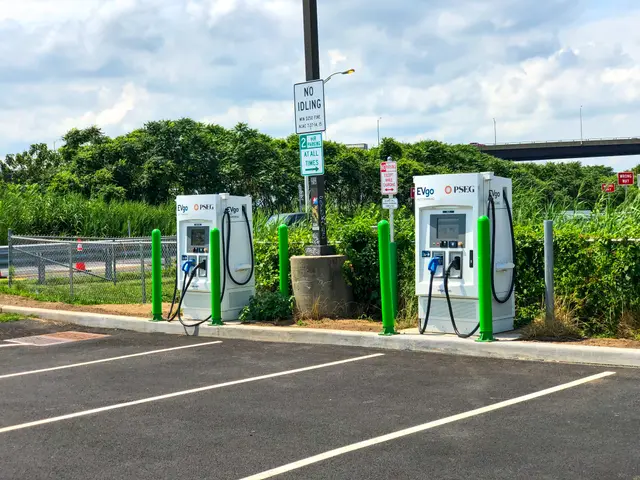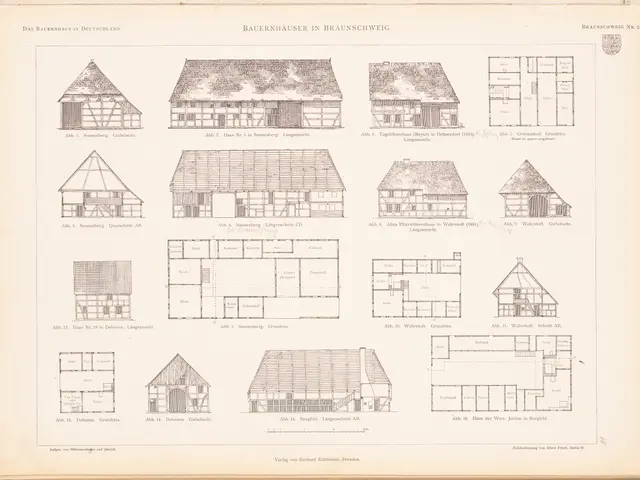Balcony Solar in Germany: A Growing Trend for Energy Independence
The Rise of Mini Solar Panels in Germany
Approximately one-fourth of Germans express readiness for solar panel installation on their balconies.
Less popular yet, mini solar panels, or balcony solar systems, are slowly gaining traction across Germany. A survey conducted by Verivox for the Funke media group revealed that nearly a quarter of Germans are open to the idea of installing solar panels on their balconies[1]. The survey also found that 9% of Germans already own a mini solar panel, with 17% planning to purchase one.
The Potential for Users
According to the survey, around 21% of respondents don't have enough space for a balcony solar system, while 15% think it's not worth investing in one[1]. Interestingly, 19% of respondents aren't keen on the idea, and another 19% are undecided. The survey, conducted by Innofact in March, sampled 1007 participants, with the results adjusted to reflect the population[1].
Economics of Balcony Solar
A 800-watt balcony solar system, under ideal conditions, can produce approximately 760 kilowatt-hours (kWh) of electricity per year. If 60% of this energy is used, it can save a user around €160 annually, given an average electricity cost of 34.7 cents/kWh[1]. The purchase price for this size system ranges from €500 to €800 for balconies, and between €400 to €700 for gardens or terraces[1]. With an operating life of 20 years, this system can save around €3,160 in electricity costs.
The Role of Federal States
Some federal states offer subsidies for the purchase of balcony solar systems, further encouraging adoption[1].
The Effect of Location
The success of a balcony solar system depends heavily on its location. For maximum yield, a south-facing balcony with solar panels inclined and avoiding shade is ideal. However, even those with north-facing balconies can install vertical panels and generate a fraction of the possible yield[1].
Looking Ahead
The growing popularity of balcony solar systems in Germany, coupled with regional incentives, suggests a bright future for this clean energy solution[1]. Companies like Enphase Energy are launching new products to cater to this market, strengthening the movement towards clean, decentralized energy production.
References:
- ntv.de, mau
Keywords:
- Solar energy
- Solar industry
- Solar panels
- Solar promotion
- Electricity price
- Clean energy solutions
- Decentralized energy solutions
- Energy independence
- Cost savings
- Regional subsidies
- Mini solar panels
- Energy self-sufficiency
- Balcony solar systems
- Plug-and-play systems
- Small-scale energy production
- In addition to home-and-garden improvements, small and medium-sized undertakings could benefit from aid in the solar industry, as the economies of balcony solar systems show potential for savings in energy costs.
- As the solar industry grows, small and medium-sized businesses in the finance sector may want to consider investing in energy-efficient solutions such as balcony solar systems, which can provide a return through cost savings and regional subsidies.
- For those interested in energy independence and energy self-sufficiency, small and medium-sized lifestyle adjustments, like implementing a balcony solar system, can contribute to a greener future and promote the growth of the small and medium-sized home-and-garden and technology industries.








